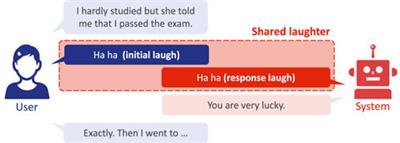ORIGINAL RESEARCH
Published on 25 Jul 2023
Chat agents respond more empathetically by using hearsay experience
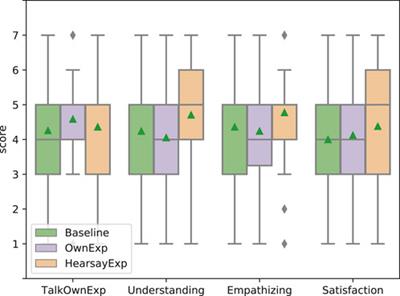
doi 10.3389/frobt.2023.960087
- 2,529 views
5,522
Total downloads
44k
Total views and downloads
Select the journal/section where you want your idea to be submitted:
ORIGINAL RESEARCH
Published on 25 Jul 2023

ORIGINAL RESEARCH
Published on 03 May 2023

REVIEW
Published on 15 Dec 2022
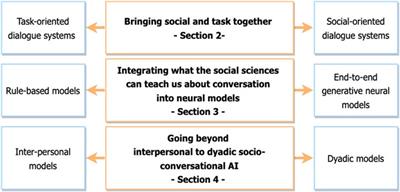
ORIGINAL RESEARCH
Published on 01 Dec 2022
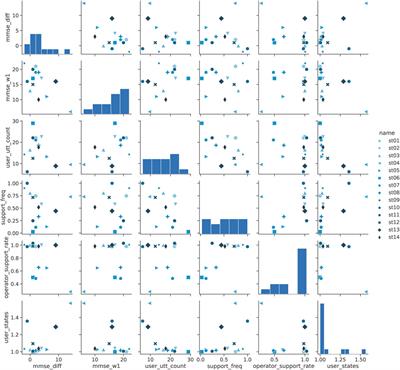
ORIGINAL RESEARCH
Published on 23 Nov 2022

ORIGINAL RESEARCH
Published on 17 Oct 2022

ORIGINAL RESEARCH
Published on 11 Oct 2022
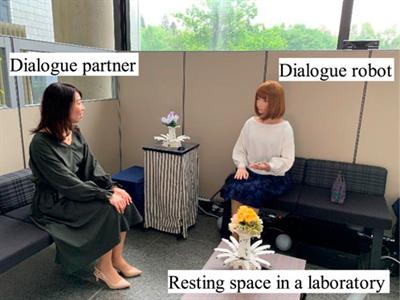
ORIGINAL RESEARCH
Published on 15 Sep 2022
